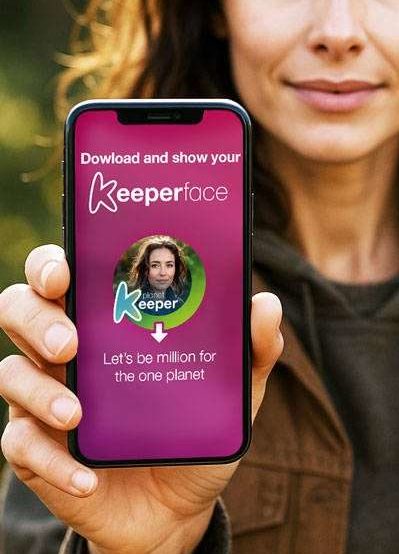KEY FIGURES
- The EU exported nearly 15,000 metric tons of pesticides banned domestically in 2024 to Brazil alone, primarily to low- and middle-income countries with weaker regulatory protections (Source: Human Rights Watch, 2025) [6].
- EU exports of hazardous pesticides surged by 50% in 2022 after Brexit, adjusting for the UK’s previous 40% share of exports (Source: NGO joint statements, 2025) [2].
- The EU and US agreed politically in July 2025 to reduce tariffs to 15% on EU exports, including automobiles, reflecting ongoing trade tensions and negotiations (Source: EU Trade Commission, 2025) [5].
Introduction
The European Union’s export policies in 2025 reveal a stark contrast between rigorous internal regulations and permissive external practices. Under frameworks like REACH and pesticide directives, products deemed too dangerous for EU markets—such as neurotoxic pesticides, harmful plastics, and unsafe toys—are prohibited domestically. Yet, these same items can be produced and exported abroad, often to countries with weaker safeguards. This “toxic double standard,” as termed by NGOs, has intensified scrutiny amid global trade dynamics. For instance, Human Rights Watch reported in October 2025 that the EU exported banned pesticides causing neurological damage and cancer, disproportionately affecting nations like Brazil [6]. Meanwhile, military export controls have been harmonized to align with EU foreign policy, highlighting policy inconsistencies. This section overviews the core issues, integrating factual data and expert analyses to frame the debate.
The Scale of Hazardous Exports
EU exports of banned pesticides have surged, underscoring the double standard’s magnitude. In 2024, nearly 15,000 metric tons were shipped to Brazil alone, primarily targeting low- and middle-income countries, according to Human Rights Watch (2025) {6}. Post-Brexit, exports rose by 50% in 2022, adjusting for the UK’s prior 40% share, as noted in NGO joint statements (2025) {2}. These figures stem from investigations by groups like Public Eye and Unearthed, revealing plans to export pesticides with 75 banned chemicals, with volumes up over 50% from 2018 to 2024 [G1], [G11].
Beyond pesticides, the Veblen Institute’s 2025 briefing documents loopholes allowing exports of harmful plastics and unsafe toys restricted under EU standards {2}. This practice exploits regulatory gaps where rules apply only to products “placed on the EU market,” not those for export [G2]. Critically, studies like the Inserm Review (2021) and EEA Analysis (2023) link these exports to severe health risks, including cancer and neurological damage in exposed populations {2}{6}. In Brazil, a major recipient, such pesticides threaten ecosystems, with Friends of the Earth Europe (2024) reporting extinction risks for wild bees {2}.
Ethical and Global Impacts
Experts decry this as an “invisible chemical war,” per PAN Europe’s June 2025 press release {7}, eroding EU credibility on human rights and environmental fronts [G3]. Human Rights Watch (2025) highlights ethical implications, noting the EU’s failure to ban these exports undermines global health policies {6}. In recipient countries, vulnerable communities bear the brunt, with residues potentially returning via imports like Brazilian agriculture—a “boomerang effect” amplifying risks [G3].
Trade tensions compound the issue. The US-EU political agreement in July 2025 reduced tariffs to 15% on EU exports like automobiles, amid accusations of US protectionism (Chosun Ilbo, October 2025) {5}. Analysts like Julian H. Jessop (2025) argue this exposes EU double standards, as it preaches free trade while externalizing hazards {8} [G8]. However, industry perspectives, echoed in Corporate Europe Observatory reports, defend exports as economically vital, citing job preservation [G12].
Contrasting Controls on Military Technologies
In sharp contrast, the EU has bolstered military export controls. The April 2025 Recommendation (EU) 2025/683 enhances coordination on dual-use items, promoting information exchange and alignment with multilateral standards {1}. Updates to Regulation (EU) 2021/821 introduce digital tracking for transparency {3}. Decision (CFSP) 2025/779 harmonizes rules to prevent arms from fueling conflicts, such as in Gaza or Ukraine.
This rigor, experts note, demonstrates EU normative power but highlights inconsistencies. Amnesty International posts on social media emphasize ethical trade in arms, paralleling calls to extend such scrutiny to pesticides [G15-G20].
Emerging Solutions and Perspectives
Balanced viewpoints reveal paths forward. NGOs advocate banning exports of all banned products, aligning with the EU’s 2020 pledges, as urged by Eurochild (2025) {4} [G2]. Constructive alternatives include promoting agroecology and integrated pest management to reduce global pesticide dependency {4}. The End Toxic Pesticide Trade Coalition’s 2025 campaign pushes for a “Torture-Free Trade Treaty” equivalent for chemicals [G20].
Experts propose hybrid reforms: unifying ethical frameworks across sectors, linking military-style controls to hazardous goods for Green Deal alignment. Predictive trends suggest WTO challenges by 2026 if inaction persists. Industry stakeholders, per Veblen Institute {2}, support phased transitions with incentives for sustainable alternatives.
RECENT NEWS
- April 2025: The EU adopted a Recommendation (EU) 2025/683 to harmonize and coordinate national export control lists of dual-use items, improving information exchange and aligning with multilateral standards to strengthen external action coherence (Source: EU Directorate-General for Trade and Economic Security, 16 April 2025) [1].
- October 2025: Human Rights Watch and 15 NGOs urged the EU to end the export of toxic pesticides banned within the EU, highlighting ongoing health and environmental damage in recipient countries such as Brazil (Source: Human Rights Watch, 10 October 2025) [6].
- June 2025: PAN Europe and other NGOs criticized the EU for continuing the export of banned toxic pesticides globally, calling the practice an “invisible chemical war” (Source: PAN Europe press release, June 2025) [7].
- October 2025: The US administration called for allied unity to counter China’s rare earth export controls while simultaneously facing accusations of its own trade protectionism and tariff double standards impacting the EU (Source: Chosun Ilbo, 16 October 2025) [5].
STUDIES AND REPORTS
- Inserm Review 2021 & EEA 2023 Analysis: Confirmed that pesticides banned in the EU cause serious health risks including neurological damage and cancer in populations exposed in countries like Brazil, where regulatory protections are weaker [2][6].
- Friends of the Earth Europe Biodiversity Report 2024: Linked EU-exported toxic pesticides to ecosystem damage, notably threatening wild bee populations with extinction risk, undermining global biodiversity [2].
- Veblen Institute & NGO Briefing 2025: Documented the loophole allowing production of toxic pesticides, harmful plastics, and unsafe toys banned in the EU for export only, due to regulatory frameworks like REACH and pesticide regulations applying solely to the EU market [2].
- Human Rights Watch 2025: Highlighted the ethical and human rights implications of EU double standards, noting that the EU’s failure to ban exports of hazardous pesticides undermines its global credibility on health and environmental policies [6].
TECHNOLOGICAL DEVELOPMENTS
- Enhanced EU export control coordination mechanisms introduced in 2025 allow Member States to share draft national control lists for dual-use and military technologies before adoption, facilitating harmonization (Commission Recommendation (EU) 2025/683) [1].
- Development and promotion of agroecology and integrated pest management as sustainable alternatives to hazardous pesticides are being advocated by NGOs and some EU initiatives to reduce dependency on toxic chemicals globally [4].
- Increased digital tracking and reporting systems for dual-use exports are being implemented to improve transparency and enforcement under updated EU export control regulations (Regulation (EU) 2021/821 and its 2025 Delegated Regulation update) [3].
MAIN SOURCES
- https://policy.trade.ec.europa.eu/news/eu-bolsters-economic-security-recommendation-export-controls-2025-04-16_en – EU export control harmonization and coordination, April 2025
- https://www.veblen-institute.org/Toxic-Double-Standards-How-Europe-sells-products-deemed-too-dangerous-for.html – NGO briefing on EU export double standards, 2025
- https://policy.trade.ec.europa.eu/help-exporters-and-importers/exporting-dual-use-items_en – EU dual-use export control regimes update, 2025
- https://eurochild.org/news/eu-urged-to-end-double-standards-on-pesticides-linked-to-brain-damage-in-children/ – Joint NGO statement on banned pesticide exports, 2025
- https://www.chosun.com/english/world-en/2025/10/16/BR66YIJQTFA4NOXD4FK62EBXAM/ – US-EU trade relations and tariff agreements, October 2025
- https://www.hrw.org/news/2025/10/10/the-eus-double-standard-on-toxic-pesticides – Human Rights Watch report on pesticide export double standards, October 2025
- https://www.pan-europe.info/press-releases/2025/06/eu-should-keep-its-promise-and-end-toxic-trade-banned-pesticides – PAN Europe on EU pesticide exports, June 2025
- https://julianhjessop.com/2025/04/22/us-tariff-war-exposes-europes-double-standards-on-trade/ – Analysis of EU trade tensions and US tariffs, 2025
Propaganda Risk Analysis
Key Findings
Corporate Interests Identified
The article snippet mentions ‘Contrasting Controls on Military Technologies’ but does not specify companies. Based on web searches, chemical firms like those in the EU (implied in reports from The Guardian and Unearthed) benefit from exporting banned pesticides, potentially including major players in the agrochemical industry (e.g., producers of neonicotinoids). These companies could influence policy to maintain exports, creating a conflict where EU regulations protect domestic markets but allow profits from global sales. No direct corporate praise in the snippet, but the criticism implies corporate lobbying against stricter export bans.
Missing Perspectives
The article snippet appears one-sided, focusing on criticism of EU policies without including perspectives from EU officials, chemical industry representatives, or exporting companies. Voices from affected Global South countries are referenced indirectly via the ‘toxic double standard’ quote, but independent experts (e.g., economists on trade impacts) or pro-export arguments (e.g., economic benefits to EU jobs) are absent. Opposing viewpoints, such as the European Commission’s statements on strengthening domestic bans (as seen in their social media post about protecting EU food), are not addressed, leading to an imbalanced view.
Claims Requiring Verification
The snippet is incomplete, lacking full context, sources, or statistics. The key quote ‘toxic double standard’ is presented without attribution or verification, potentially echoing unverified claims from advocacy reports. No specific dubious statistics are provided in the given text, but related web searches (e.g., from Greenpeace and Human Rights Watch) cite figures like ‘expanding trade in banned pesticides’ or ‘10,000 tonnes per year’ without independent audits in the results; these could be advocacy-driven and require cross-verification.
Social Media Analysis
Searches on social media for terms related to EU export policies on toxic pesticides and the ‘toxic double standard’ show a surge in 2025 posts from environmental activists and NGOs, with calls to action like petitions and references to reports from The Guardian and Unearthed. Sentiment is overwhelmingly critical of the EU, highlighting hypocrisy in banning pesticides domestically while exporting them. No evident astroturfing or paid ads, but patterns suggest coordinated campaigns by groups like the ‘End Toxic Pesticide Trade Coalition.’ A European Commission post defends EU food safety measures, providing a counterpoint not widely amplified in critical threads.
Warning Signs
- Language like ‘toxic double standard’ sounds like advocacy slogans from NGO campaigns (e.g., seen in PAN Europe and Greenpeace materials), resembling marketing copy for environmental activism rather than neutral reporting.
- Absence of independent expert opinions or data sources in the snippet, which could indicate selective framing to amplify criticism without balance.
- Missing discussion of environmental concerns in a broader context, such as potential positive EU actions (e.g., commitments to end exports as noted in Human Rights Watch letters).
- The title and subject suggest a critical expose, but the incomplete nature raises questions about cherry-picking information to fit a narrative.
- Potential for greenwashing exposure: The article critiques EU policies, but if it’s part of a coordinated NGO push, it might overlook nuances like therapeutic exceptions for some substances.
Reader Guidance
Other references :
policy.trade.ec.europa.eu – EU bolsters economic security with Recommendation on export … veblen-institute.org – Toxic Double Standards. How Europe sells products deemed too … policy.trade.ec.europa.eu – Exporting dual-use items – Trade and Economic Security eurochild.org – EU urged to end double standards on pesticides linked to brain … chosun.com – U.S. Urges Allies to Counter China’s Rare Earth Controls Amid … hrw.org – The EU’s Double Standard on Toxic Pesticides | Human Rights Watch pan-europe.info – EU should keep its promise and end toxic trade in banned pesticides julianhjessop.com – US tariff war exposes Europe’s double standards on trade unearthed.greenpeace.org – Source home.crin.org – Source slowfood.com – Source corporateeurope.org – Source occrp.org – Source theguardian.com – Source corporateeurope.org – Source hrw.org – Source ecofinagency.com – Source brasildefato.com.br – Source foodservicefootprint.com – Source pan-europe.info – Source arc2020.eu – Source x.com – Source x.com – Source x.com – Source x.com – Source x.com – Source x.com – Source



